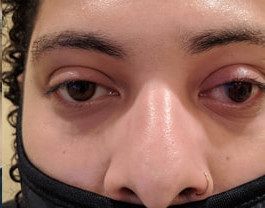Jump To:
Fast Facts
- Operation Duration: 30-60 Minutes
- Success Rate: About 90%
- Approximate Length Of Stay: 1 Week
- Improve Vision: 1-2 Weeks

Glaucoma Surgery
“Glaucoma Surgery” is performed to reduce intraocular pressure (IOP) and prevent further damage to the optic nerve, which can help preserve vision in individuals with glaucoma.
There are several types of glaucoma surgeries, and the appropriate choice depends on the type and severity of glaucoma, as well as the patient’s overall health and response to other treatments.
Here’s an overview of the different types of glaucoma surgeries and what to expect:
Types of Glaucoma Surgery
1. Laser Surgery
- Trabeculoplasty:
- Used primarily for open-angle glaucoma.
- A laser is used to open the drainage angle of the eye to improve the outflow of aqueous humor.
- Iridotomy:
- Used for narrow-angle or angle-closure glaucoma.
- A laser creates a small hole in the iris to help fluid flow to the drainage angle.
- Cyclophotocoagulation:
- Used when other surgeries are not effective.
- A laser is used to reduce the production of aqueous humor by targeting the ciliary body.
2. Filtering Surgery
- Trabeculectomy:
- A part of the trabecular meshwork is removed to create a new drainage pathway for the aqueous humor.
- This procedure creates a small flap in the sclera (white part of the eye) and an opening underneath to allow fluid to drain into a bleb (a small bubble or reservoir) on the surface of the eye.
3. Minimally Invasive Glaucoma Surgery (MIGS)
- iStent, Hydrus Microstent, Xen Gel Stent:
- Small devices are implanted to enhance the drainage of aqueous humor.
- These procedures involve less tissue manipulation and have a quicker recovery time compared to traditional surgeries.
4. Drainage Implant Surgery
- Glaucoma Drainage Devices (e.g., Ahmed, Baerveldt, Molteno implants):
- Tubes are inserted into the eye to direct fluid to a reservoir (bleb) outside the eye, from where it is absorbed into the surrounding tissue.
Procedure steps
Pre-Surgery Preparation
- Comprehensive Eye Examination:
- The ophthalmologist will conduct a thorough examination of your eyes to determine the type and extent of glaucoma.
- Medical Evaluation:
- Your medical history and current medications will be reviewed to ensure there are no contraindications for surgery.
- Pre-Surgical Instructions:
- You may be advised to stop taking certain medications, such as blood thinners, before the surgery.
- Instructions on fasting or using specific eye drops before surgery might be provided.
The Surgery
- Anesthesia:
- Usually performed under local anesthesia (numbing eye drops or an injection).
- Sedation may be provided to help you relax.
- Procedure:
- Depending on the type of surgery, the ophthalmologist will either use a laser or make small incisions in the eye to create a new drainage pathway or insert drainage devices.
- Duration:
- Most glaucoma surgeries are completed within 30 minutes to an hour.
Post-Surgery Care
- Immediate Recovery:
- You will rest for a short period in a recovery area, and your eye may be covered with a protective shield.
- Post-Operative Instructions:
- You will be prescribed eye drops to prevent infection, reduce inflammation, and control eye pressure.
- Avoid strenuous activities, bending over, lifting heavy objects, or rubbing your eye.
- Follow-Up Visits:
- Multiple follow-up appointments will be scheduled to monitor the healing process and effectiveness of the surgery.
- Additional treatments or adjustments to medications may be necessary based on the results.
Potential Risks and Complications
While glaucoma surgery is generally safe, potential risks include:
- Infection
- Bleeding
- Inflammation
- Eye pressure that is too low (hypotony)
- Scarring that can affect the drainage of aqueous humor
- Vision loss or decrease in vision
Benefits of Glaucoma Surgery
- Reduced Intraocular Pressure: Surgery can effectively lower IOP, reducing the risk of further optic nerve damage.
- Preservation of Vision: By controlling IOP, glaucoma surgery helps preserve existing vision and prevent further vision loss.
- Improved Quality of Life: Maintaining stable vision can enhance the quality of life and independence.
Conclusion
Glaucoma surgery is a crucial intervention for patients whose intraocular pressure cannot be controlled with medications or laser treatments alone. It can significantly reduce the risk of vision loss due to glaucoma. SHIFA helps you adhering to pre- and post-operative care instructions and attending all follow-up appointments which are essential for the best outcomes.
Compare Before and After Images


Glaucoma Surgery
Frequently Asked
Questions
How painful is Glaucoma Surgery?
For most people, local anesthesia blocks pain during surgery. There may be some burning or stinging with ALT and LPI. Some people report mild discomfort during these procedures. Incisional glaucoma surgeries tend to have more discomfort after the procedure than laser procedures.
Does Glaucoma Surgery last forever?
Although Glaucoma Surgery can prevent further vision loss and on rare occasions even improve vision, damage that has already occurred due to glaucoma is considered permanent and not yet reversible via medication, laser surgery, eye stents, or MIGS.
Why choose SHIFA for Eye Surgery?
SHIFA Eye Center is equipped with cutting-edge medical technologies that are on par with developed countries. The cleanliness and staff professionalism of Iranian clinics and hospitals are also exceptional. Iran offers the most affordable eye treatments in comparison with other countries.
SHIFA's Departments
Related Services
Featured Services

Periodontics
“Periodontology”, also known as “Periodontics”, is a specialized branch of dentistry that focuses on the prevention, diagnosis, and treatment of

Glasses Removal Procedures
“Glass Removal Procedures”, commonly known as “Refractive Surgery”, aim to correct vision problems like “Myopia” (nearsightedness), “Hyperopia” (farsightedness), and “Astigmatism”.

Gastric Sleeve Surgery
“Gastric Sleeve Surgery”, or “Sleeve Gastrectomy”, is a popular type of weight-loss surgery (bariatric surgery) that helps people reduce weight

Gastric Band
The “Gastric Band”, also known as the “Laparoscopic Adjustable Gastric Banding” (LAGB) or simply the “Lap-Band,” is a type of
Our Blog Articles
- mehdi.mhj@gmail.com
Doccure – Making your clinic painless visit?
Explore the benefits & challenges of virtual healthcare appointments, along with tips for making good...
Read More- mehdi.mhj@gmail.com
What are the benefits of online doctor booking
Explore importance of quality sleep & learn tips to improve your sleep, ensuring raise-up refreshed...
Read More- mehdi.mhj@gmail.com
5 Great reasons to use an online doctor to choose
Delve into the impact of digital life on mental health & discover practical strategies to...
Read More- mehdi.mhj@gmail.com
Benefits of Consulting With an Online Doctor
Uncover strategies to achieve a harmonious balance between professional and personal well-being....
Read More





Comments are closed.